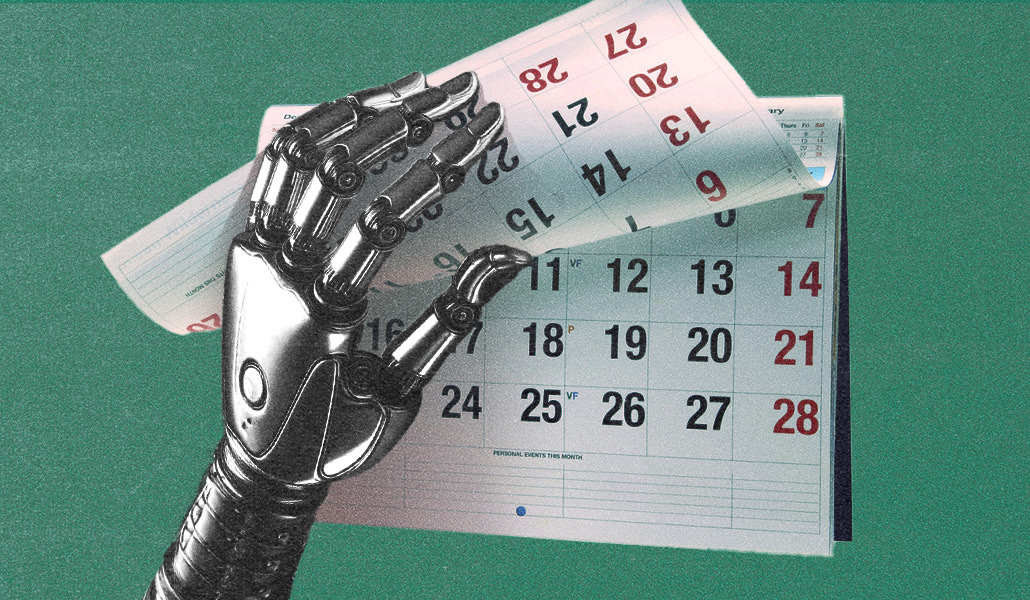Generative AI grows up: Digiday’s 2024 timeline of transformation
Alongside innovation, partnerships and adoption, Year 2 of the generative AI race also includes more scrutiny over transparency, copyright, and ethics.

## The Revolutionary Impact of Generative AI: A Year in Review### Introduction2024 witnessed the extraordinary rise of generative AI, transforming industries, fueling innovation, and sparking ethical debates. This recap highlights key events that defined the year, showcasing the transformative power of AI and its impact on various sectors.### January: AI Takes Center Stage- CES 2024 ignited with announcements of AI-infused gadgets, smart technologies, and initiatives from tech giants and consumer brands.- NRF 2024 made AI a focal point with countless exhibitors showcasing cutting-edge solutions.- Agency holding companies, like Publicis Groupe and WPP, unveiled substantial investments in AI development.- Samsung introduced innovative AI features for the Galaxy S24, partnered with Google for Circle to Search, and expanded its generative AI tools for advertisers.### February: AI Goes Mainstream- Tech companies sought to popularize AI through captivating Super Bowl ads from Microsoft, Google, and others.- Non-tech brands, such as Avocados from Mexico, utilized AI for creative marketing campaigns.- Qualcomm embraced AI with a sonic logo for its Snapdragon brand.- Pfizer introduced "Charlie," its own generative AI platform named after the company's founder.### March: Regulation and Ethical Concerns- The European Union's groundbreaking AI Act passed, setting comprehensive regulations for AI use.- President Biden raised concerns about deepfake risks in his State of the Union address.- OpenAI faced questions about content used to train its Sora video model. YouTube raised copyright concerns.- Gale, owned by Stagwell, launched Alchemy.AI for media planning and strategy.- OpenAI partnered with Le Monde and Prisa Media, marking its first media collaborations.- Vimeo introduced Vimeo Central, an AI-powered hub for video creation and editing.- AI-generated ads for a Willy Wonka pop-up event sparked accusations of false advertising.### April: Enterprise Adoption Surge- Cohere released an LLM for enhanced accuracy and support for multiple languages.- OpenAI expanded enterprise features for customizing AI models.- Amazon and Mistral introduced joint enterprise AI tools.- Perplexity unveiled Perplexity Pro for businesses.- Cloud wars intensified as Google debuted AI updates at Cloud Next and Snowflake announced a Marketing Data Cloud.- Meta AI introduced Llama 3 and updated its AI chatbot across platforms.- Adobe launched Firefly 3 for AI-powered image tools.- Coca-Cola and Microsoft announced a $1.1 billion agreement focused on generative AI and cloud computing.- Yahoo acquired Artifact, an AI news platform.### May: Copyright Controversies and Publisher Deals- Publishers inked deals with OpenAI and Google, despite copyright concerns.- News Corp, the AP, Time, and DotDash Meredith established agreements with AI companies.- OpenAI faced a lawsuit from publishers owned by Alden Capital.- AI-powered targeting and personalization dominated upfronts in New York.- TikTok and OpenAI joined the Coalition for Content Provenance and Authenticity, aiming to label AI content.- A24 faced criticism for using AI-generated images in its film "Civil War."### June: AI Video and Audio Innovations- AI video took center stage at Tribeca Film Festival and Toys R Us campaigns.- AI audio startups unveiled platforms and partnerships, while others faced copyright infringement lawsuits.### July: AI at the Olympics and in Marketing- Tech companies leveraged AI during the 2024 Olympics, showcasing intelligent shopping and athlete enhancement.- Google faced backlash for the "Dear Sydney" campaign, portraying a young girl using AI for fan mail.- AI-related ad spending skyrocketed, reaching $107 million.- Writer introduced retrieval-augmented generation (RAG) for enhanced chat app development.- eBay added AI tools for advertising optimization.- Omnicom launched ArtBotAI for creative asset optimization.- Canva acquired Leonardo.AI, an AI-powered image and video startup.- Russian actors were alleged to have used AI-generated content in political misinformation campaigns.### August: Election Security and AI Regulation- State and federal officials addressed AI risks related to elections.- California passed legislation requiring AI detection tools and disclosure requirements.- Meta highlighted the growth of its Llama AI models, with 350 million downloads and 20 million users in a single month.- AI investments were hailed as beneficial for advertisers, despite concerns about measurement accuracy.- US Tennis Association showcased AI features at the US Open.- Perplexity's advertising deck sparked curiosity about the future of ad campaigns.### September: Meta's AI Vision and Industry-Wide Developments- Meta Connect unveiled AI-enhanced products, including the release of Llama 3.2 and celebrity voice collaborations for AI audio.- Google's NotebookLM gained popularity with its AI-generated audio summaries.- The FTC took legal actions against deceptive AI marketing claims.- McAfee and Lenovo released a tool for detecting audio deepfakes.### October: Ad Tools and Retail Applications- Pinterest and Google introduced AI-powered ad tools for image generation and media buying.- Microsoft, Meta, and Reddit rolled out AI features for targeting and optimization.- Walmart introduced Wallaby, an AI model for enhancing retail operations.- Adobe debuted a Content Authenticity app to protect creators' IP.- Trainspot launched a data marketplace for licensed AI training data.- OpenAI faced whistleblowing claims and a researcher's sudden death.### November: Perplexity's Debut and Election Concerns- Perplexity unveiled its AI search platform with early advertisers and a new AI shopping assistant.- AI-generated political misinformation raised concerns ahead of the US election.- Legal battles commenced, with Google subpoenaing AI rivals and OpenAI receiving a subpoena from the DOJ.### December: AI Video Advancements and New Features- OpenAI's Sora, Google's Veo, and Amazon's Nova models transformed AI video capabilities.- TikTok, Runway ML, and Samsung also showcased advancements in AI video.- Google introduced Gemini 2.0 with new features, including Project Mariner for autonomous web browsing.- Apple's iOS 18.2 integrated ChatGPT with Siri and Writing Tools.- Merging agencies, Omnicom and IPG, fueled speculation about future AI investments.- Reddit added generative AI-powered answer generation.### Looking Ahead to 2025The rapid integration of AI in marketing and media promises an even more transformative year in 2025. Ongoing ethical debates and regulations will continue to shape the development and utilization of AI, ensuring its responsible and impactful application.